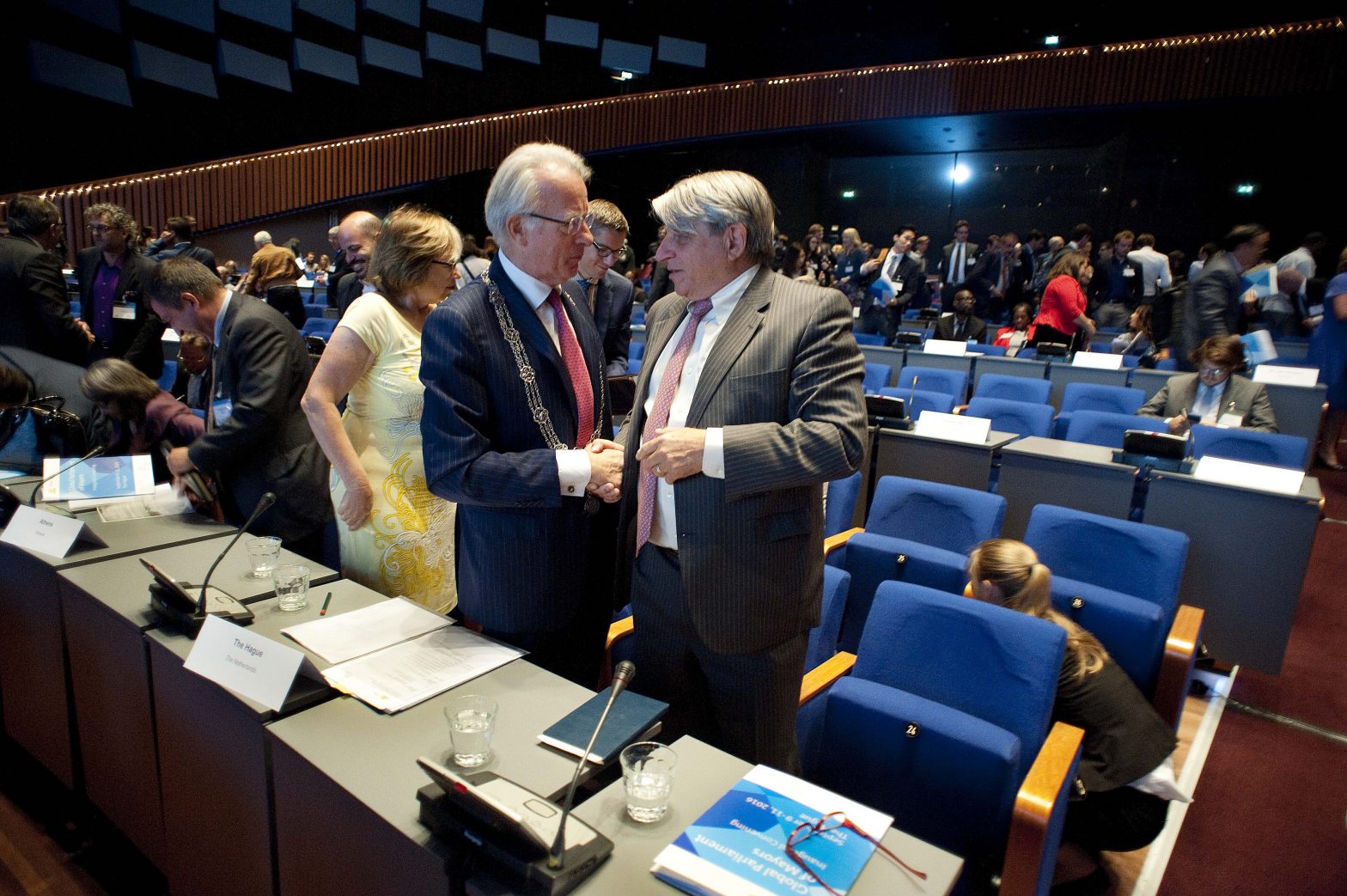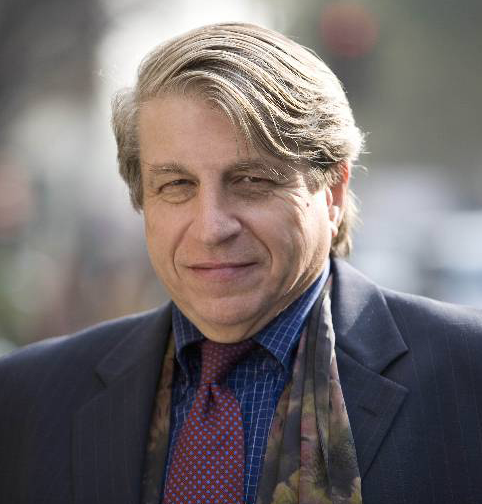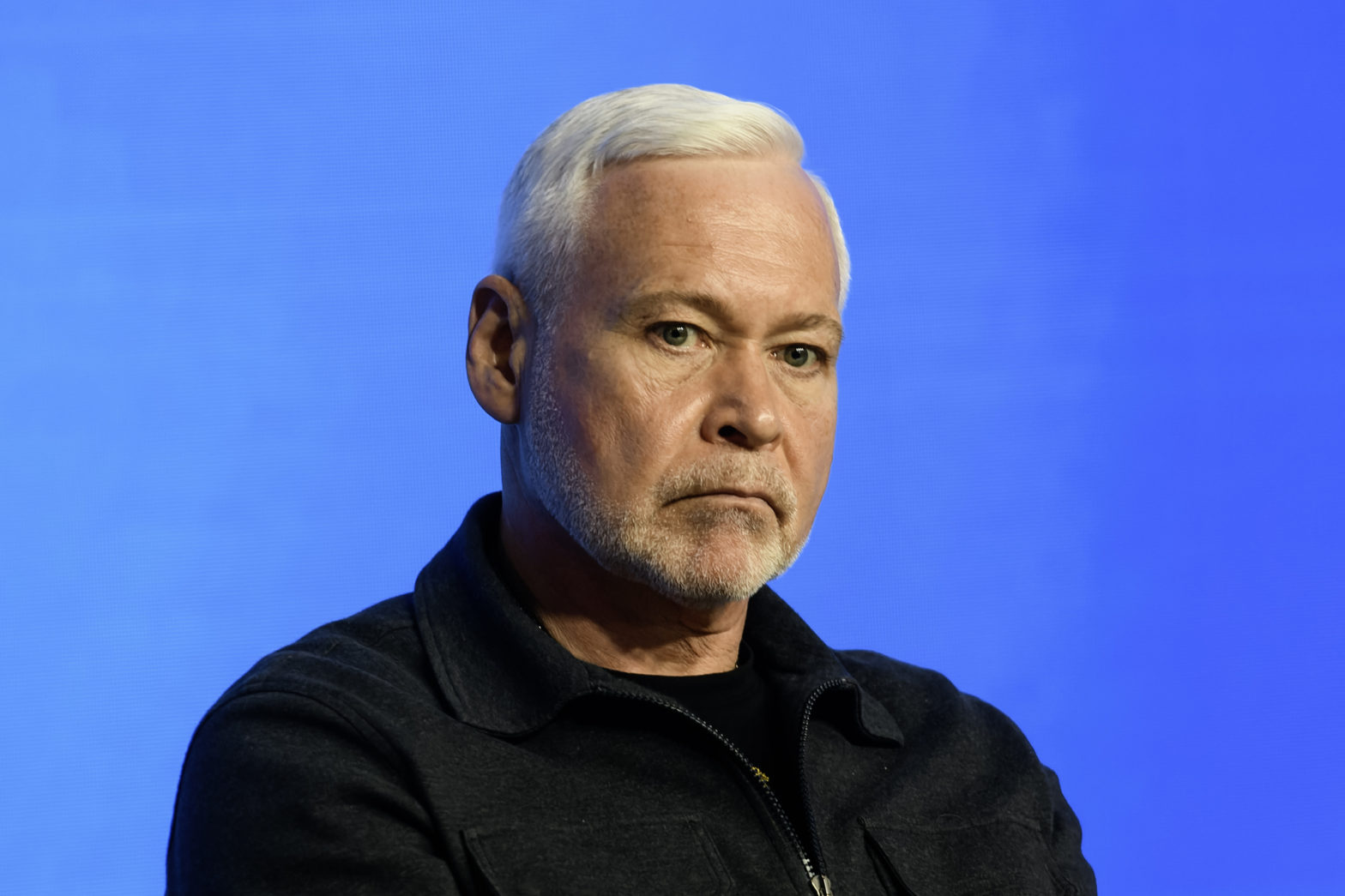
Photo: Mayors-4
Interview: Dr Benjamin Barber, Global Parliament of Mayors
12 September 2016
by Jonathan Andrews
Jonathan Andrews spoke to Dr Benjamin Barber during the first convening of the Global Parliament of Mayors in The Hague about the goals of the new parliament and the momentum needed to carry it forward
The first convening of the parliament was due to take place in October 2015, what were the reasons for the postponement until now?
The idea for a Global Parliament of Mayors originated in a book I published three years ago, If mayors ruled the world, and almost immediately following that I started to get calls. Mayor Park Won Soon from Seoul, Mayor Boris Johnson of London, Mayor Bloomberg of New York, and other mayors saying, ‘This is really interesting’. At the third planning meeting in Amsterdam, with the G4 Dutch mayors in September 2014, we agreed we would do the first meeting in London and Bristol. Mayor George Ferguson was the mayor of Bristol and Boris Johnson was the mayor of London. About halfway through the planning session we discovered that Boris Johnson wanted to run for parliament. He left so we lost our sponsoring mayor in London and we couldn’t do it in Bristol alone, and Ferguson was up for re-election and lost, so we had to postpone.
Was that a blessing in disguise?
It was a fortunate accident because we weren’t really quite ready. Firstly we didn’t have enough cities and mayors fully on board. We had what we understood and knew and would be a problem, that there are many wonderful networks already out there, UCLG, C40, EUROCITIES, US Conference of Mayors and others. A number of them said, ‘What’s going on here? What do we need this for? We already have a network’. There were good reasons why we needed it but we hadn’t made that clear.
So the postponement actually became a blessing because we got more mayors on board. More importantly you can see it here. We have 25 networks–the very organisations that initially thought we were just trying to steal their programme but they came to understand that we were trying to do something different. Firstly, we recognise, appreciate and want to build on the foundation of their work but to do something that they haven’t done which is to create collective power among cities to act together globally. Not just to share practices, information and research but to create a governance body. None of these organisations would say they are a governance or power body. Once that became clear many of them thought ‘that’s great’ and recognised our work.
The result is, by doing it a year later here in The Hague, we have more mayors and more understanding and most importantly we have representations from organisations that in the beginning were a bit sceptical. It was a lucky accident that Boris went to parliament and forced us to wait a year because by doing so we have a stronger, more representative governance body than what we would have had.
The Global Parliament of Mayors can be a keystone of global city networks and make all of us stronger.
 What type of powers do you envisage for the parliament to have?
What type of powers do you envisage for the parliament to have?
Without the precedent of cities working together, for example UCLG which goes back 100 years, we couldn’t have done this. But what city networks haven’t done yet is to govern together. This is to say we have to assume some of the responsibilities of sovereignty. We talk about sovereign cities as sovereign states and the rights and needs of cities to act whether or not the state approves, and in many cases nation states couldn’t survive without the help of cities. This is building on but in a very different way, what some of the city organisations have achieved. The image I like to portray is building an arch. You need a keystone to keep everything in place. The Global Parliament of Mayors can be a keystone of global city networks and make all of us stronger. We wouldn’t be there without the other blocks in the arch to hold everything up.
If we want [the parliament] to become reality then we need mayors to say, ‘This is ours, we’ll take it over’.
What do you foresee happening after this first convening? What will carry the momentum forward?
For [the parliament] to succeed, two things have to happen. Firstly, we have to come away from this with common actions on refugees, on climate change and say that cities are not only addressing problems but offering common solutions. Secondly, going forward, up until now this has been my dream but if we want it to become reality then we need mayors to say, ‘This is ours, we’ll take it over’. That means quite specifically that cities and mayors form an executive committee with a president and a secretariat for an autonomous body by, for and of cities. It won’t belong to me or other cities or mayors, it will be this new autonomous body. We will have succeeded if we leave Sunday with an outline of the plan going forward where cities fund, decide where the next one is to be held, decide who will make up the members of the board, and what the secretariat will look like, that will be the success. Going from Barber’s dream, to the mayors’ reality.








